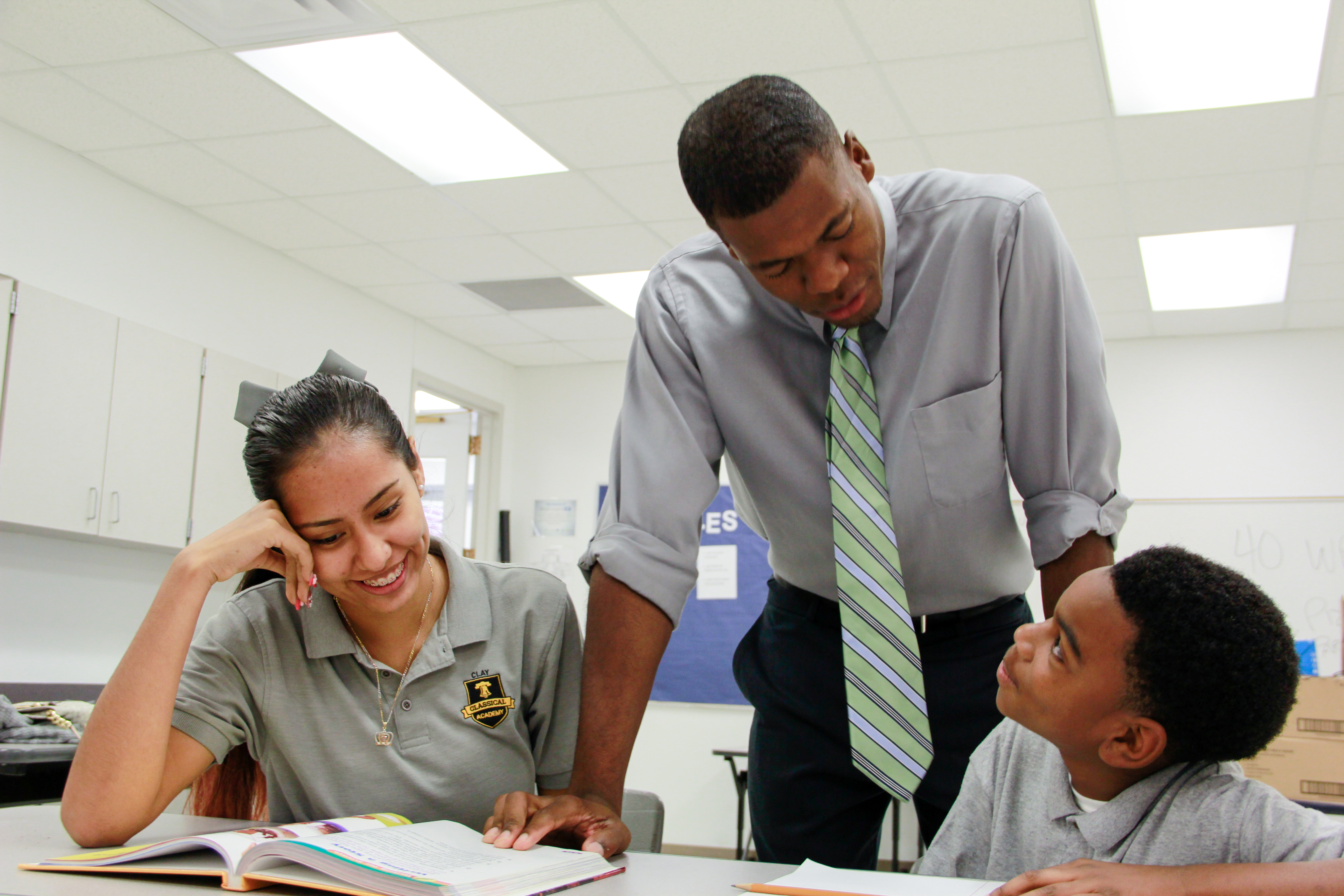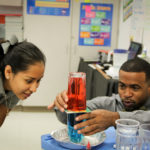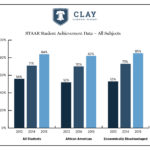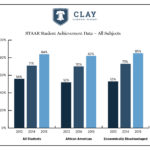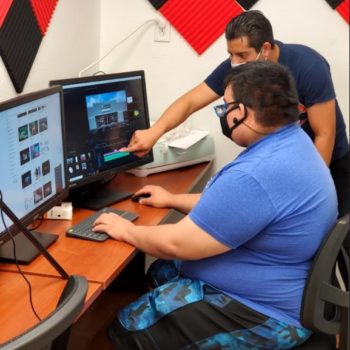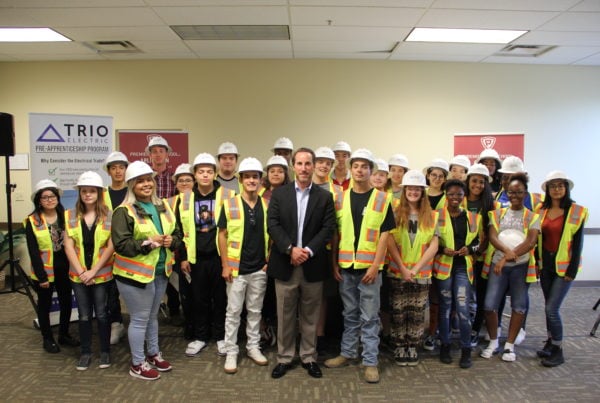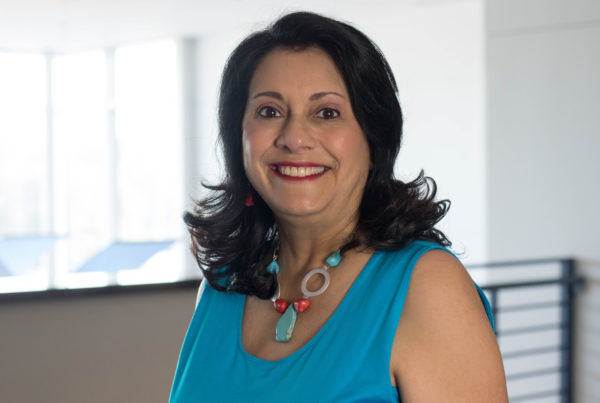Students at Clay Classical Academy, a ResponsiveEd® charter school in southwest Dallas, achieved an 84% pass rate on the State of Texas Assessment of Academic Readiness (STAAR) in 2015, increasing their results by 28% since the test was first administered in 2013.
These results, driven by school director Ericka Johnson-Allen’s focus on quality instruction and academic data, have given parents and students good reason to have confidence in the school’s academic program.
Daniel Adame, the father of four daughters attending the school, said he has watched their daughters’ grades improve during the past two years.
“Before coming to Clay Academy my oldest daughter, Monica, wouldn’t push herself. She did the minimal work just to get by. Since coming to this school, she is now pushing herself. She used to come home with 70%, now it is 80% and 90%,” said Mr. Adame.
He credits his daughter’s growth to the involved teachers who find each individual student’s needs.
Monica said her grades have improved because her teachers motivated her. Her math teacher helped her get excited about math, which helped her do well on the state math assessment test.
“She might be strict, but it’s because she wants the best for me. She does it to help you because she knows you can do it if she gives just a little push,” Monica said.
Many parents and teachers credit Ms. Johnson-Allen, who came to Clay Classical Academy in the 2013-14 school year with a track record of using data to drive academic results. Her first initiative was to develop a teaching culture focused on helping each student succeed and grow based on clear academic goals.
“We looked at where the kids were. We talked about the data. Then we had to understand the number on the paper in terms of the child in the classroom. Our children learn a little differently, so we had to ask, what will we do differently in the classroom to change that number on the paper?” said Ms. Johnson-Allen.
The focused attention Ms. Johnson-Allen put on each of her students is apparent in the Texas Education Agency’s (TEA) 2015 Accountability Summary. In 2015, the school received TEA distinctions for Academic Achievement in Reading/ELA, Academic Achievement in Science, Academic Achievement in Social Studies, Top 25 Percent Student Progress, Top 25 Percent Closing Performance Gaps and Postsecondary Readiness. The school also saw an increase in the academic growth rates of economically disadvantaged students (32%), and African American students (30%).
Science STAAR scores in particular tell an impressive story of improvement. Across all grades, students passed at a 21% rate in 2013, 58% in 2014 and 82% in 2015, an increase in pass rates of 61% in just two years.
Clay’s science teachers promote academic growth and student engagement with experiments and memorization through music. This approach has made the subject more interesting to sixth grader Omari Powell.
“Science is my favorite class because of how we do experiments, take notes and get engaged in science,” said Omari.
To turn the tide, Ms. Johnson-Allen began meeting with her teachers every Monday after school to discuss what is working well and what needs to be changed. They also conduct regular data meetings where they discuss student Measure of Academic Performance (MAP) scores and what needs to be improved.
“Every individual—not just the school as a whole—has shown growth. Our data wall has every child on it with a picture. It wasn’t enough for me to just have name and a score. I needed a picture because I needed my staff to see that child as a more than a number on a board,” said Ms. Johnson-Allen
One side of the teacher’s lounge is dedicated to the data wall. The teachers move the students’ data cards up the board as they improve.
Parent Cori Henderson has noticed his sons’ personalities flourish as well as watched their vocabularies and conversation topics mature. He believes the positive, close-knit environment is responsible for this growth.
“The whole teaching staff has the mindset to go above and beyond to help kids. They will stay after school, which is unheard of. When I walk through the doors of Clay, I feel at peace and ease. The kids don’t have to worry about anything. She [Ms. Johnson-Allen] created that environment,” he said.
Ms. Johnson-Allen said finding the right teachers to help her develop the school was essential. When it comes to finding teachers, her first focus is finding individuals with a story and a heart.
“If they come in with a story, they have been through something and then they have a passion. A passion you cannot teach. But if they have a passion inside of them, I like that. I can teach them to teach, I just need them to have a heart that has love for these kids. And I need them to love data,” she said.
![]()

